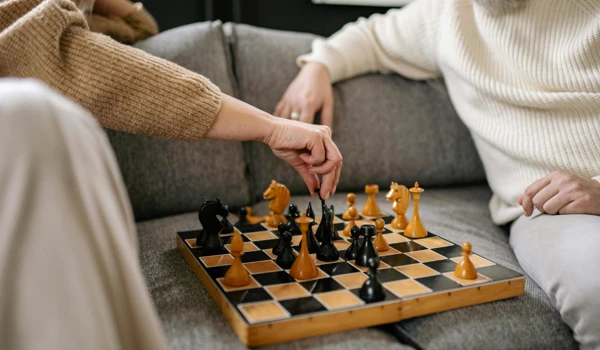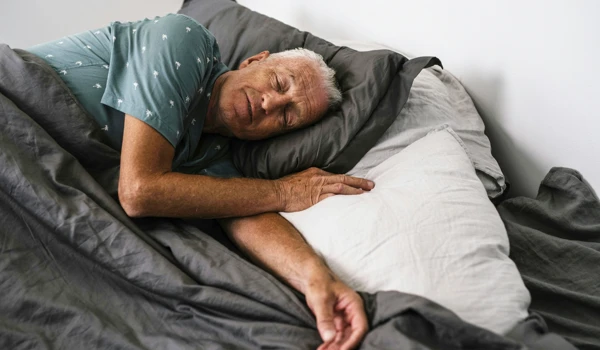Healthy eating and nutrition in later life
Eating healthily is important for all of us no matter what stage of life we’re in, however ensuring you have plenty of nutritious foods in your diet throughout later life will help you stay active and healthy for longer.
Eating a balanced diet in later life
Balance is the key to a healthy diet. It’s important to ensure you’re eating a wide variety of the right foods, remembering to:
- eat at least 5 portions of fruit and vegetables every day
- stay hydrated by drinking plenty of fluids
- base your meals on starchy foods such as potatoes, bread, rice and pasta
- include dairy or dairy alternatives (such as soya) in your diet
- eat plenty of beans, pulses and grains
- cut down on sugar and saturated fats
- enjoy your food!
You can find out more about eating a healthy, balanced diet on the NHS website.
Eating healthily on a budget
With such cheap ready meal options available in our supermarkets and fast food shops on every high street, it’s easy to see why many view eating healthier, fresh foods as an expensive alternative. However, healthy eating doesn’t have to cost a fortune.
Read these top tips for eating healthier on a budget:
- plan your meals for the upcoming week and make a list of what you need to buy before going into the supermarket
- cook at home instead of going out – not only will you save money but you’ll also know exactly what’s going into your food
- avoid high end brands and stick to supermarket own brands, which are often no lower in quality and offer the same nutritional benefits
- cut down on processed foods such as chocolate, sweets, convenience meals and fizzy drinks
- visit the reduced or clearance sections of your supermarket and freeze what you won’t use that day
- cook larger meals and save leftovers for lunches
- grow your own fruit, vegetables and herbs.
Vitamins for older people
Most of the time we get all the vitamins, minerals and nutrients we need by consuming a healthy balanced diet, however, you may choose to take supplements if you feel that you’re not getting enough of what you require to stay healthy.
Remember, only ever take the recommended daily amount and make sure you keep your doctor informed.

Maintaining a healthy weight in later life
Being underweight in later life
As you get older, a decrease in appetite as well as a susceptibility to illness can often lead to weight loss.
Being underweight in later life can come with some serious health complications, from increasing the chance of broken bones to weakening your immune system and leaving you more prone to illnesses and infections.
Here are some tips on how to gain weight healthily:
- avoid filling up on foods that are high in saturated fats, such as cakes and biscuits
- increase your calorie intake slowly by eating healthier, calorie dense foods such as avocados, peanut butter, beans and pulses
- stay active to increase your appetite
For underweight older adults, it’s important to seek advice from a GP to ensure there are no underlying medical issues.
Being overweight in later life
While a decrease in appetite as we age can result in weight loss, it’s also possible that a change in circumstance and a shift towards a less active lifestyle can cause weight gain in people who are at the later stages of their life.
Being overweight or obese in later life can be detrimental to your health, hugely increasing your risk of developing serious conditions such as type 2 diabetes, high blood pressure as well as many different types of cancers.
Here are some tips on how to lose weight as an older person:
- eat healthy, home-cooked meals and avoid snacking on sugary or fatty foods
- move towards a lower salt diet
- increase your physical activity levels by starting with easy, low impact exercises such as a brisk walk or jog
- join a local weight loss group (such as Weight Watchers or Slimming World) to get the support you need – these are also a great way to improve your social life, too
For more tips on losing weight safely, visit the NHS website.
Remember, always seek medical advice and speak to your GP about the best ways to lose weight safely.
Hydration in older people
The likelihood of suffering with dehydration increases as we age, and some older people may be less aware that they are becoming dehydrated.
Ensuring the body is properly hydrated is vital to maintaining good health, as it helps to prevent illness, keep you alert and even boost your mood. Being poorly hydrated can also increase the risk of developing urinary or kidney infections as well as pressure sores and skin conditions.
How to stay hydrated
- You should drink plenty of water throughout the day to ensure your body stays hydrated, aiming for at least 6-8 glasses each day.
- Eat foods with high water content such as cucumbers, tomatoes, apples and oranges.
- Pay attention to your body – if you have dry mouth or are experiencing headaches, make sure you are drinking plenty.
Next steps

Exercise advice for people over 65
Living an active lifestyle is a good idea for all of us, with even small levels of exercise and activity massively contributing to overall physical and mental health.

Looking after your mental wellbeing
Living a healthy lifestyle in old age is not just about looking after your physical health and fitness, but about making sure that you look after your mental wellbeing too.

Getting a good night's sleep
We all experience difficulties staying or falling asleep sometimes, however these issues are particularly common in older people due to the natural changes that our circadian rhythms go through as we age.
